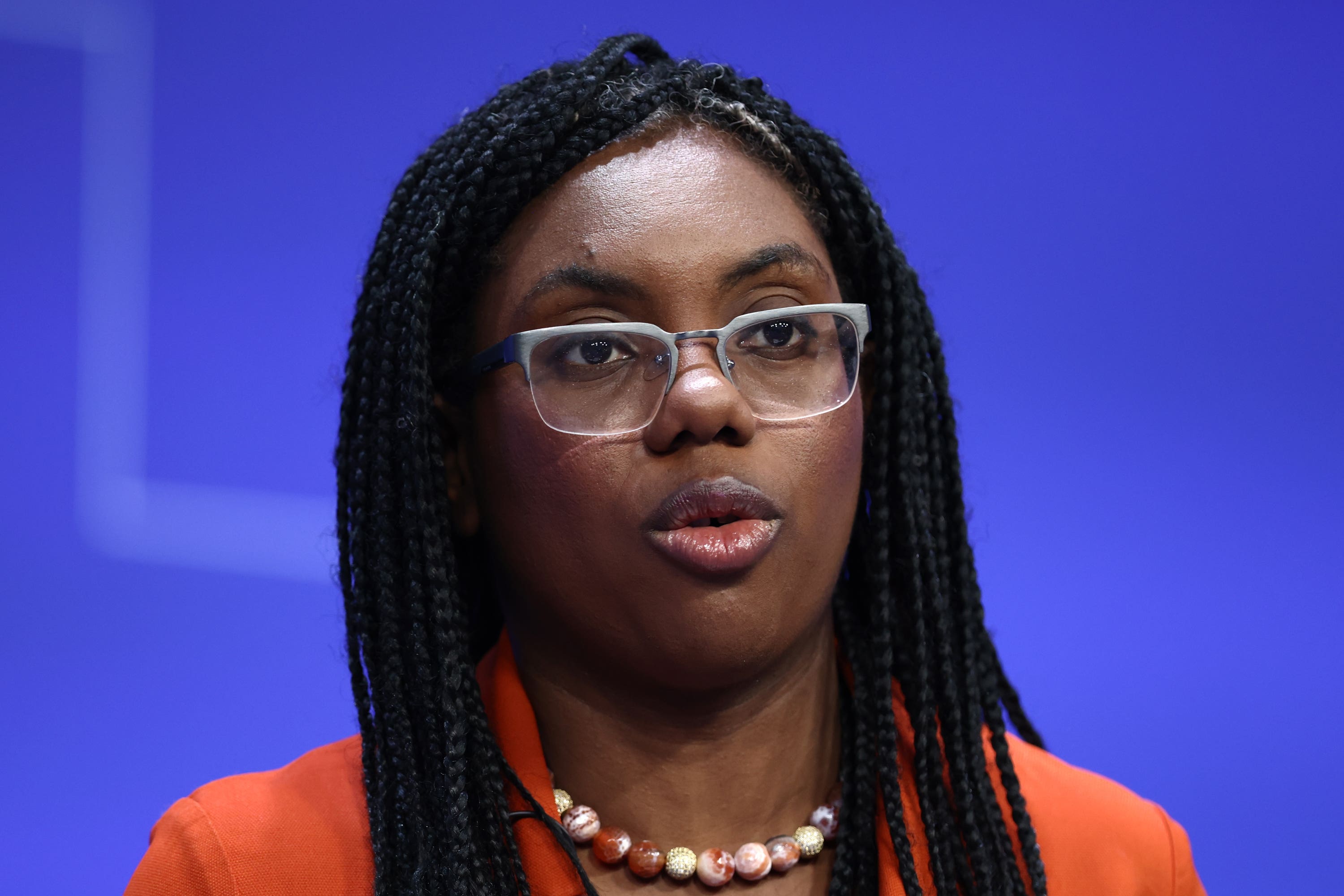The race to replace Rishi Sunak has begun. Who is in the running?
With an election only a year away, the Tory popularity contest has started in earnest. Sean O’Grady takes a look at the contenders for the top job


Barring some kind of cataclysmic disaster this week, Rishi Sunak seems safe as Conservative leader. Even if he delivers a lacklustre speech, or gets heckled, his position should be assured this close to a general election.
Theresa May, whose cough-addled oration in 2017 was delivered against a disintegrating backdrop and interrupted by a prankster handing her a P45, managed to hang on for another 18 months.
Despite wild talk about votes of confidence, and Priti Patel placing herself at the head of a grassroots “peasants’ revolt”, the prime minister is not likely to be going anywhere quite yet. But that doesn’t mean that others aren’t looking to the post-Sunak future, and going on manoeuvres...
Who’s jostling?
The list of potential successors to Sunak – should the party lose the election – is an unusually long one. The favourite at the moment among activists, according to the always entertaining Conservative Home survey, is Kemi Badenoch, the business and trade secretary. A formidable performer and a protege of Michael Gove, she staged a respectable bid for the leadership from nowhere last year, and currently enjoys a 65 per cent approval rating among the membership – the highest in the cabinet.
A sure sign that a contender means business is a tendency to start talking about issues way beyond their brief. Thus Badenoch, not for the first time, has strayed well away from economic matters, and echoed (her rival) Suella Braverman’s suggestion that the UK should campaign to reform international conventions on refugees: “It’s certainly not racist to talk about reviewing conventions which we joined 100 years ago. I think that is a ridiculous argument.”
However, Badenoch, differentiating herself, carefully avoided attacking multiculturalism as a “failure” in the way that Braverman did, demonstrating a marginally more moderate stance. She’s also taken the opportunity, in her capacity as minister for equalities, to attack Stonewall, and suggest that it and other charities shouldn’t receive public money.
And while it remained well within her remit, her conference speech contained the sort of Brexity anti-Labour rhetoric the Eurosceptics love to hear, such as an odd claim that Keir Starmer is “not someone who believes in the UK’s ability to think for itself”.
What about Braverman?
Braverman has slipped badly in the activists’ esteem over the past year or so, presumably because of her failure to “stop the boats” or get the Rwanda plan operational. She’s now in fourth place in approval ratings, lagging behind less clumsily ambitious colleagues James Cleverly and Penny Mordaunt. Hence her recent ideologically pure and provocative speech to the American Enterprise Institute, looking prime ministerial on the world stage en route to stirring things up in Manchester.
Any others?
Clare Coutinho, the new energy secretary, has made her first keynote speech, and her profile is growing as a more radical, youthful choice even than the others.
Does the Conservative Democratic Organisation matter?
Not much at the moment, but there’s no doubt it is being unhelpful to the present leadership. The CDO began as a vehicle to “Bring Back Boris”, and now seeks to wrest control over the party from MPs and hand it to the membership. Though small and cranky at the moment, the CDO could become large and cranky after an election defeat. They’ve not “endorsed” any particular putative candidate. Yet.
Why do they do this sort of thing at conference time?
Because it’s the best way of engaging directly with the grassroots, and conference is a unique opportunity for MPs to discreetly (or not) campaign, to commune with the like-minded in person, to build support, and to show what they think (or tell their fans what they think they want to hear, which isn’t always the same thing).
Even in the days when MPs had the sole say on the leadership, the views of the membership had some influence, and that was even the case before the 1960s, when a new leader would “emerge” through the “usual processes”. Since William Hague reformed the rules, Tory MPs vote to select a final two candidates, and the winner of those two is selected by the members (albeit they were deprived of the chance when Mordaunt dropped out and Sunak was elected “unopposed” a year ago). So the views of party members do count.
Can party conferences help ambitious politicians?
Certainly. Look at Boris Johnson. When he was mayor of London he’d turn up at conferences, both on the official platform and on the fringe, and enthral his audiences with his signature dish of bumble, bad jokes, and rabble-rousing sub-Churchillian rhetoric. In doing so he built up his “base”, and also annoyed, distracted, and undermined David Cameron and May.
Strong performances at party conferences have helped Alec Douglas-Home, Hague and Cameron to prevail, while Michael Heseltine almost got to be leader with his showmanship.
What about Johnson?
Keeping a low profile. He hardly needs to build a profile, and doesn’t want to get any blame for “wrecking” conference and thereby contributing to the party’s defeat at the election. He’s probably not lost his BoJo mojo, though.






Join our commenting forum
Join thought-provoking conversations, follow other Independent readers and see their replies
Comments